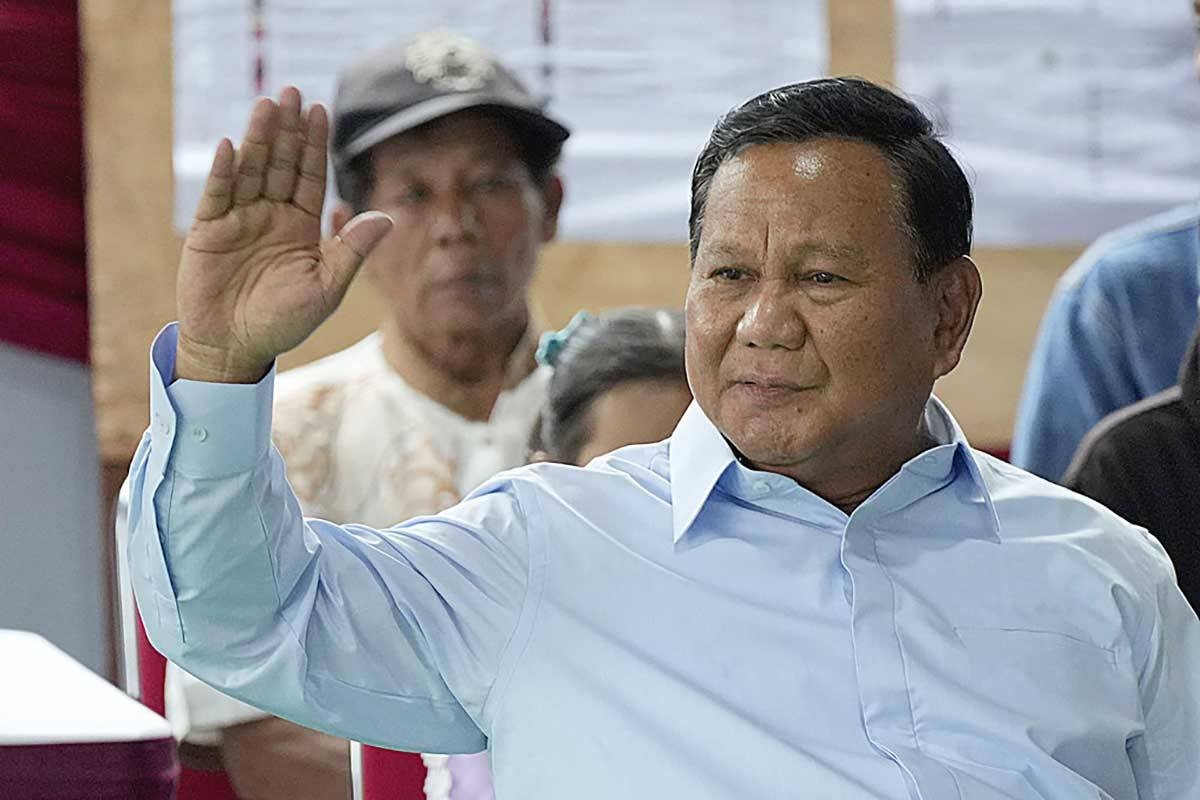JAKARTA, Indonesia: In a surprising turn of events, Prabowo Subianto, a wealthy ex-general with ties to both Indonesia’s popular outgoing president and its dictatorial past, appears to be on track to become the country’s next president. Unofficial tallies from the first round of voting indicate that Subianto has garnered a clear majority.
Defense Minister Prabowo Subianto positioned himself as the rightful successor to the immensely popular sitting President Joko Widodo, pledging to uphold and continue the modernization agenda that has propelled Indonesia into the ranks of middle-income countries, fostering rapid growth and development.
In a speech broadcast on national television from a sports stadium on the night of the election, Subianto humbly addressed the nation, stating, “We should not be arrogant. We should not be proud. We should not be euphoric. We still have to be humble. This victory must be a victory for all Indonesian people.”
However, as Subianto prepares to take office, there are lingering concerns about the environmental and social costs of the country’s extraction-driven growth, as well as his own controversial past. During the final years of the brutal Suharto dictatorship, Subianto, serving as a lieutenant general, was linked to allegations of torture, disappearances, and other human rights abuses.
Once a rival of President Widodo, Subianto joined forces with the popular leader, even selecting Widodo’s son as his running mate. This decision, however, raised constitutional age limit concerns and sparked worries among activists about the emergence of a political dynasty in Indonesia’s young democracy, which celebrated its 25th anniversary this year.
While Subianto’s victory is yet to be officially confirmed, his two rivals have not conceded, and the official results may take up to a month to be tabulated. However, the “quick counts” conducted by polling agencies on election night, which are based on millions of sampled ballots from across the country, have proven accurate in past elections. These counts currently show Subianto leading with over 55 percent of the vote in the three-way race.
Born in 1951 into one of Indonesia’s most influential families, Subianto is the third of four children. His father, Sumitro Djojohadikusumo, was a prominent politician and served as a minister under Presidents Sukarno and Suharto.
Subianto spent much of his childhood abroad, as his family went into exile after his father turned against President Sukarno. They returned to Indonesia when General Suharto assumed power in 1967 following a failed left-wing coup. Suharto’s regime was marked by severe repression of dissent and allegations of widespread corruption.
After graduating from Indonesia’s Military Academy in 1974, Subianto served in the military for nearly three decades. He joined the Indonesian National Army Special Force, known as Kopassus, in 1976 and eventually became the commander of a group that operated in what is now East Timor.
Human rights groups have accused Subianto of involvement in human rights violations during Indonesia’s occupation of Timor-Leste in the 1980s and 90s. Subianto vehemently denies these allegations. As a result of these accusations, Subianto and other members of Kopassus were banned from traveling to the US for many years. The ban was lifted in 2020 when Subianto visited the US as Indonesia’s defense minister.
In 1983, Subianto married Siti Hediati Hariyadi, Suharto’s daughter. However, further allegations of human rights abuses led to Subianto’s dismissal from the military in 1998. This followed the kidnapping and torture of political opponents of Suharto, Subianto’s then-father-in-law. Out of the 22 activists abducted that year, 13 are still missing. While some of Subianto’s men were tried and convicted, Subianto himself was not held accountable.
As Indonesia awaits the official confirmation of Subianto’s victory, the nation stands at a critical juncture. The incoming president must address the concerns surrounding environmental sustainability and human rights, while also ensuring that the country’s progress and development continue. Only time will tell how Subianto’s presidency will shape Indonesia’s future.







